
Lelydorp: The Heartbeat of Suriname's Tropical Harmony
Lelydorp, the second-largest city in Suriname, offers a unique blend of cultural diversity and natural beauty. Situated just a short drive from the capital city, Paramaribo, Lelydorp is the perfect escape for those wanting to experience the charm of Suriname's interior without straying too far from modern conveniences. The city is named after Cornelis Lely, a Dutch governor known for his significant contributions to the country. This historical nod adds a layer of depth to your visit, reminding you of the rich colonial past that continues to influence the city's present-day culture. As a tourist, you'll find Lelydorp to be a treasure trove of biodiversity. The lush greenery and tropical climate host an array of flora and fauna, making it a paradise for nature lovers. The nearby Peperpot Nature Park offers guided tours that bring you face-to-face with exotic birds, monkeys, and other wildlife. If you are an adventure seeker, the park's trails are perfect for hiking and bird-watching. Cultural enthusiasts will appreciate the city's diverse population, which includes descendants of African, Indian, Javanese, and Indigenous peoples. This melting pot is reflected in the local cuisine, festivals, and daily life. Don't miss out on enjoying a meal at one of the local restaurants, where you can savor traditional Surinamese dishes that fuse flavors from around the world. The markets are also a must-visit, brimming with fresh produce, handmade crafts, and vibrant textiles. For those interested in history, the nearby War Museum in Fort Zeelandia provides an insightful look into Suriname's past. You can also visit the local plantations, which offer tours explaining the history of agriculture in the region. The community is friendly and welcoming, making your stay not just a visit but an experience filled with warm interactions and lasting memories.
Local tips in Lelydorp
- Plan your visit during the dry season (February to August) to avoid heavy rains and enjoy outdoor activities.
- Hire a local guide for a richer experience at Peperpot Nature Park; they offer valuable insights that you might miss otherwise.
- Try the local street food for an authentic taste of Surinamese cuisine; don't miss dishes like roti, pom, and satay.
- Visit the markets early in the morning for the freshest produce and unique handmade crafts.
- Learn a few basic phrases in Dutch or Sranan Tongo to better connect with the locals; it will be greatly appreciated.
Lelydorp: The Heartbeat of Suriname's Tropical Harmony
Lelydorp, the second-largest city in Suriname, offers a unique blend of cultural diversity and natural beauty. Situated just a short drive from the capital city, Paramaribo, Lelydorp is the perfect escape for those wanting to experience the charm of Suriname's interior without straying too far from modern conveniences. The city is named after Cornelis Lely, a Dutch governor known for his significant contributions to the country. This historical nod adds a layer of depth to your visit, reminding you of the rich colonial past that continues to influence the city's present-day culture. As a tourist, you'll find Lelydorp to be a treasure trove of biodiversity. The lush greenery and tropical climate host an array of flora and fauna, making it a paradise for nature lovers. The nearby Peperpot Nature Park offers guided tours that bring you face-to-face with exotic birds, monkeys, and other wildlife. If you are an adventure seeker, the park's trails are perfect for hiking and bird-watching. Cultural enthusiasts will appreciate the city's diverse population, which includes descendants of African, Indian, Javanese, and Indigenous peoples. This melting pot is reflected in the local cuisine, festivals, and daily life. Don't miss out on enjoying a meal at one of the local restaurants, where you can savor traditional Surinamese dishes that fuse flavors from around the world. The markets are also a must-visit, brimming with fresh produce, handmade crafts, and vibrant textiles. For those interested in history, the nearby War Museum in Fort Zeelandia provides an insightful look into Suriname's past. You can also visit the local plantations, which offer tours explaining the history of agriculture in the region. The community is friendly and welcoming, making your stay not just a visit but an experience filled with warm interactions and lasting memories.
When is the best time to go to Lelydorp?
Iconic landmarks you can’t miss
Palmtree Garden
Experience the tranquility of Palmtree Garden, a lush oasis in Paramaribo, perfect for relaxation, family outings, and appreciating Suriname's natural beauty.
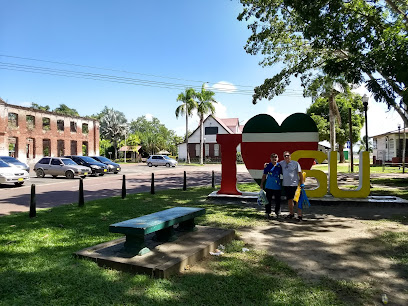
Fort Zeelandia
Explore Fort Zeelandia, a historical gem in Paramaribo, Suriname, showcasing the colonial past and stunning views of the Suriname River.
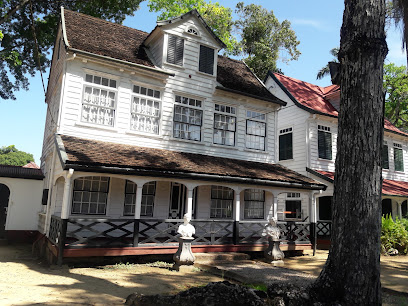
Paramaribo Zoo
Explore the enchanting Paramaribo Zoo, where local wildlife meets exotic species in a beautifully landscaped setting perfect for families and nature lovers.
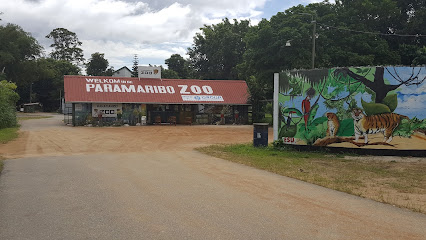
Saint-Peter-and-Paul Basilica of Paramaribo
Discover the stunning Saint-Peter-and-Paul Basilica in Paramaribo, an architectural masterpiece and a significant cultural landmark of Suriname.
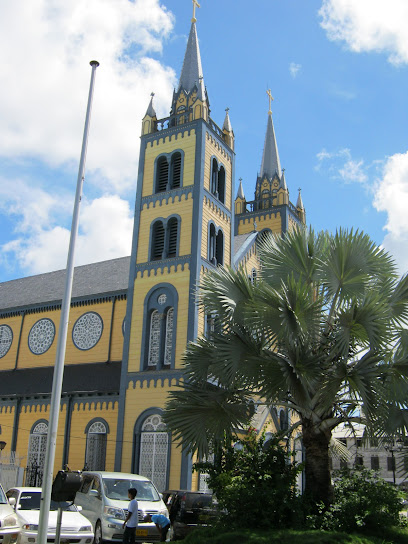
Brownsberg
Discover the breathtaking beauty of Brownsberg Park, a natural sanctuary in Suriname filled with lush rainforests, stunning waterfalls, and diverse wildlife.
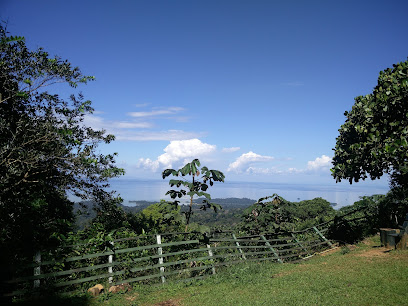
Peperpot Nature Park
Discover the tranquility and biodiversity of Peperpot Nature Park, a serene nature preserve in Suriname perfect for exploration and relaxation.
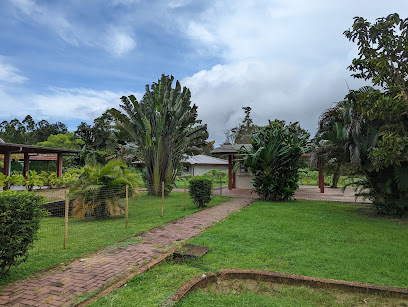
Jules Wijdenbosch Bridge
Discover the stunning Jules Wijdenbosch Bridge in Paramaribo, Suriname, a striking architectural marvel offering breathtaking views and cultural experiences.
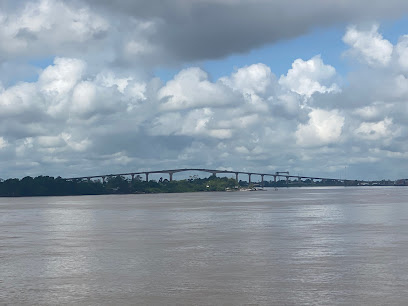
Presidential Palace
Discover the grandeur of Suriname's Presidential Palace, a historical monument reflecting the nation's rich heritage and architectural beauty in Paramaribo.
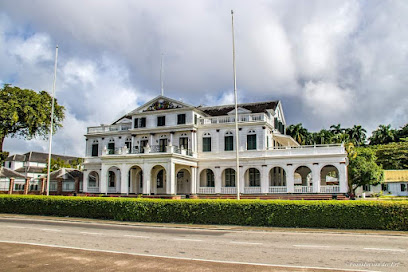
Bigi Pan
Discover the breathtaking landscapes and vibrant wildlife of Bigi Pan National Park, a must-visit destination for nature lovers in Suriname.
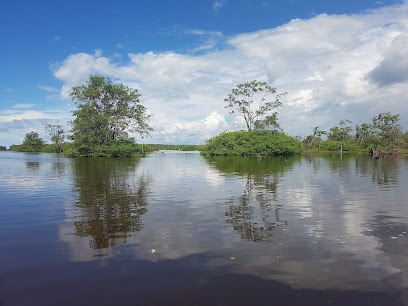
Het Koto Museum
Immerse yourself in the vibrant culture of Suriname at Het Koto Museum, where history and tradition beautifully intertwine.
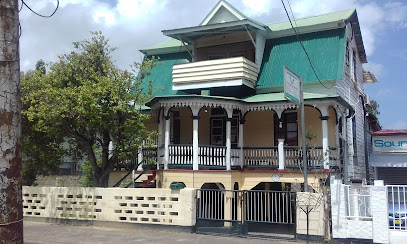
Neveh Shalom Synagogue
Explore Neveh Shalom Synagogue in Paramaribo, a historic gem showcasing Jewish culture and unique architectural beauty, perfect for cultural enthusiasts.
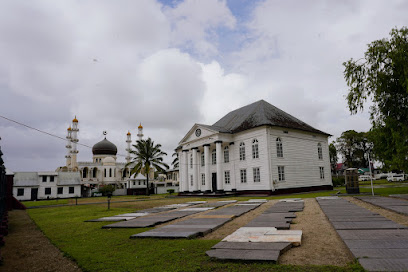
Arya Dewaker Mandir
Experience the tranquility and cultural richness of Arya Dewaker Mandir, a stunning Hindu temple in the heart of Paramaribo, Suriname.
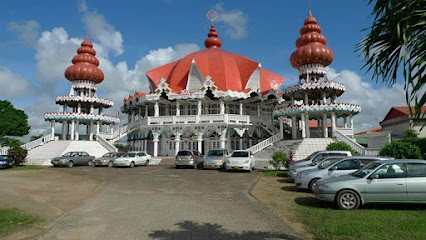
Neotropical Butterfly Park
Explore the vibrant world of butterflies at Neotropical Butterfly Park in Suriname, a tranquil escape into nature's beauty and biodiversity.
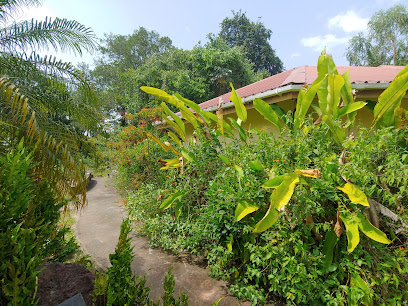
Braamspunt
Explore the serene beauty of Braamspunt Beach in Suriname, a hidden paradise perfect for relaxation, wildlife watching, and stunning sunsets.
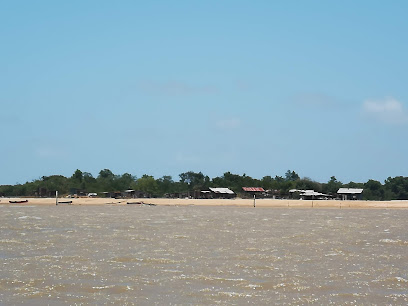
Surinaams Museum
Explore the Surinaams Museum in Fort Zeelandia to uncover Suriname's rich history and diverse cultural heritage in a captivating setting.
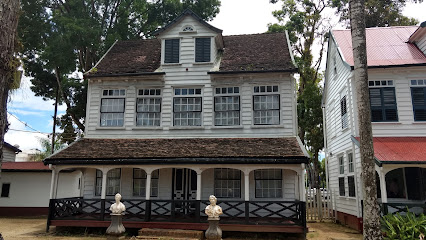
Unmissable attractions to see
Palmtree Garden
Explore the lush beauty of Palmtree Garden, a serene oasis in Paramaribo, ideal for relaxation, picnics, and cultural experiences.
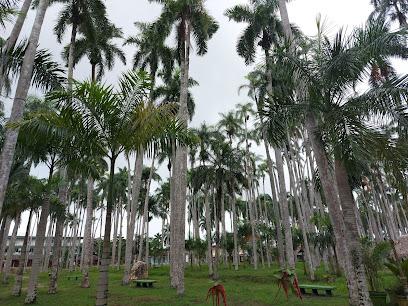
Fort Zeelandia
Explore the rich history and stunning architecture of Fort Zeelandia, a must-see museum and tourist attraction in Paramaribo, Suriname.
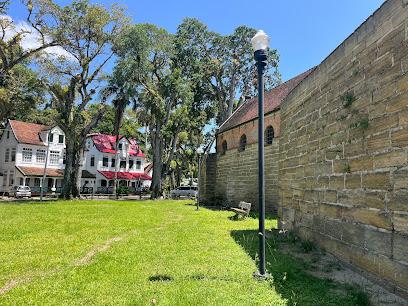
Paramaribo Zoo
Explore the vibrant wildlife and serene landscapes of Paramaribo Zoo, an essential attraction for nature lovers visiting Suriname.
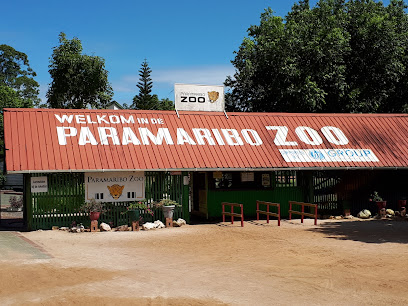
Saint-Peter-and-Paul Basilica of Paramaribo
Explore the architectural wonder and cultural heart of Suriname at the Saint-Peter-and-Paul Basilica, a stunning wooden masterpiece in Paramaribo.
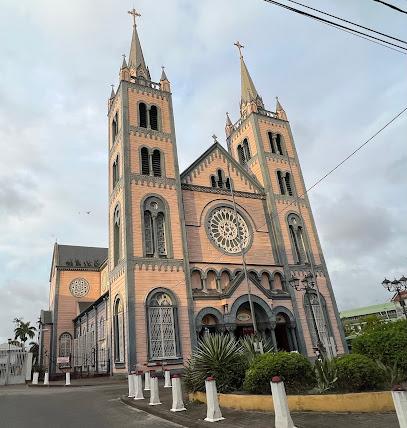
Orange Travel N.V.
Experience Suriname like never before with Orange Travel N.V., your trusted travel partner for unforgettable adventures in the heart of South America.
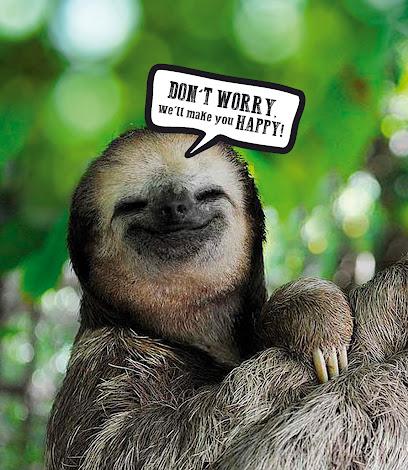
Colakreek
Experience the tranquility of Colakreek in Zanderij, Suriname—a perfect getaway for relaxation, swimming, and connecting with nature.
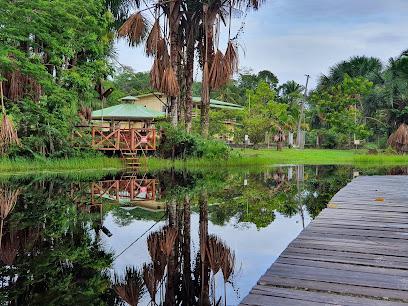
Riverside
Experience the rich flavors of Suriname at Riverside, the premier bar and grill in Paramaribo, boasting stunning riverside views and a vibrant atmosphere.
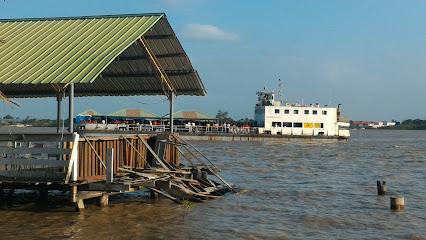
Peperpot Nature Park
Explore Peperpot Nature Park: A serene nature preserve in Suriname, rich in biodiversity and historical significance, perfect for nature lovers and adventurers.
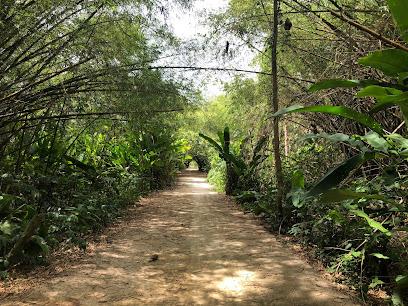
Jules Wijdenbosch Bridge
Discover the iconic Jules Wijdenbosch Bridge in Suriname, a stunning architectural landmark offering breathtaking views and a glimpse into local life.
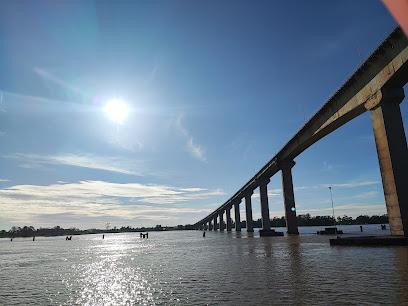
Jules Wijdenbosch Bridge
Discover the stunning Jules Wijdenbosch Bridge in Paramaribo, Suriname - a breathtaking architectural wonder offering scenic views and cultural experiences.
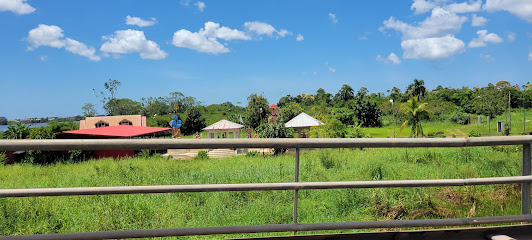
S.I.V. Mosque
Explore the serene S.I.V. Mosque in Paramaribo, a stunning architectural masterpiece and cultural gem in Suriname's vibrant capital.
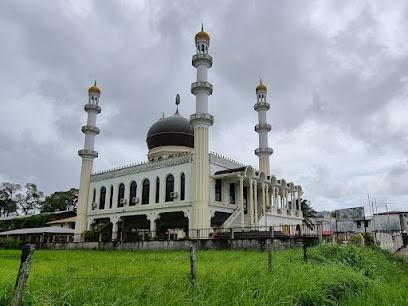
Neveh Shalom Synagogue
Explore the historic Neveh Shalom Synagogue in Paramaribo, a tranquil site reflecting the rich Jewish heritage of Suriname's vibrant culture.
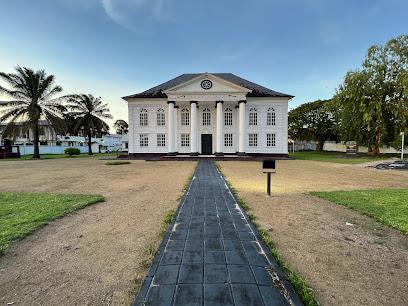
Neotropical Butterfly Park
Explore the enchanting Neotropical Butterfly Park in Suriname, a vibrant garden showcasing stunning butterflies and immersive nature experiences.
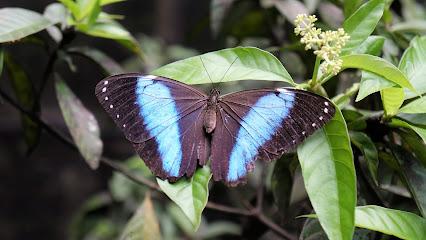
Suriname BIRD paradise
Explore Suriname BIRD paradise, an enchanting zoo showcasing the vibrant avian life of South America in a lush, immersive environment.
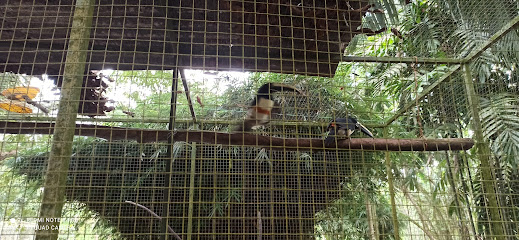
Pikin Sranan
Explore the beauty of sustainable farming at Pikin Sranan Organic Farm in Lelydorp, Suriname, where fresh produce and nature intertwine.
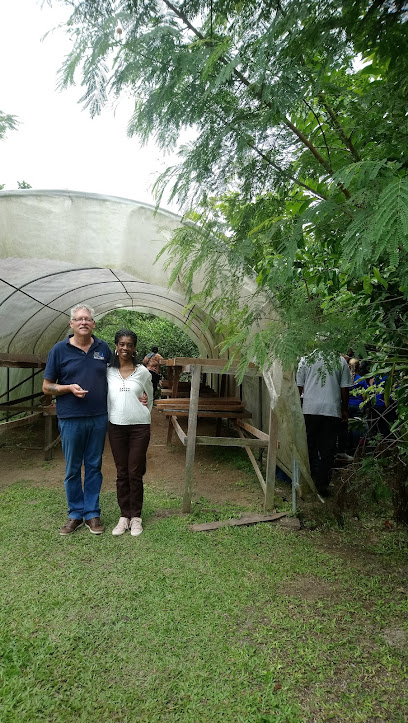
Essential places to dine
Garden of Eden
Experience authentic Thai cuisine at Garden of Eden in Paramaribo - where tradition meets flavor in a cozy setting.
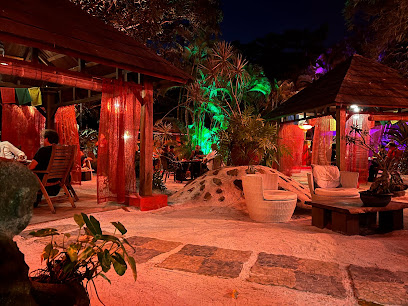
De Gadri
Savor the rich flavors of Surinamese cuisine at De Gadri - where tradition meets taste in every dish.
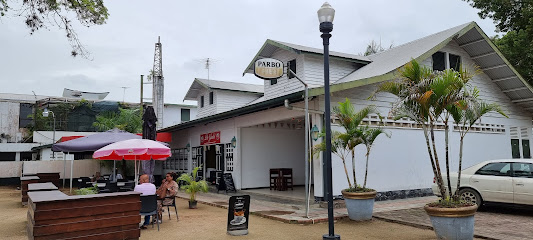
Popeyes
Experience the delicious crunch of Louisiana-style fried chicken at Popeyes in Lelydorp – a flavor-packed destination for all food lovers.
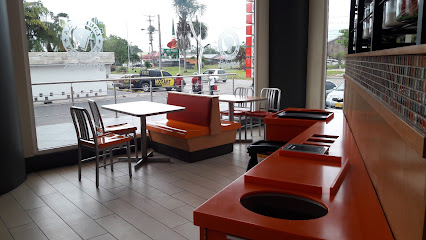
Roopram Lelydorp
Discover authentic Indian cuisine at Roopram Lelydorp - where every dish tells a story of flavor and tradition.
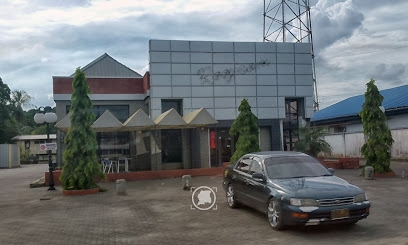
Iro Indo Restaurant
Savor authentic Indonesian flavors at Iro Indo Restaurant in Bernharddorp - an unforgettable culinary journey awaits.
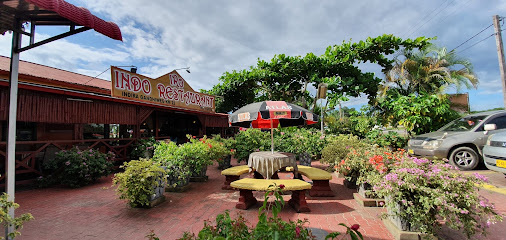
Denello's
Discover Denello's in Lelydorp: where fast food meets Surinamese flavor in an inviting atmosphere.
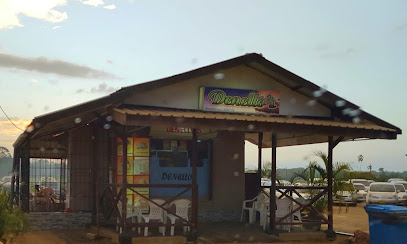
KFC Lelydorp
Discover comfort food at KFC Lelydorp - where delicious fried chicken meets local hospitality in Suriname.
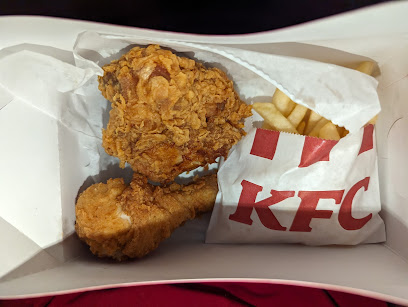
Lucky Garden
Discover authentic Surinamese flavors at Lucky Garden in Lelydorp—where delicious cuisine meets warm hospitality.
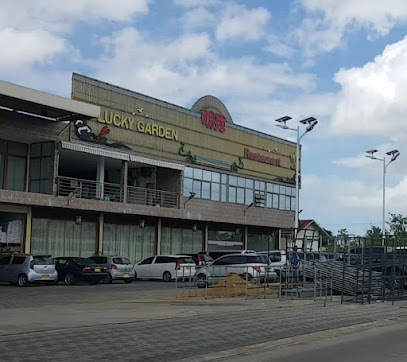
Warung Aliesje
Discover the vibrant flavors of Suriname at Warung Aliesje – where every dish is a celebration of local culture and tradition.
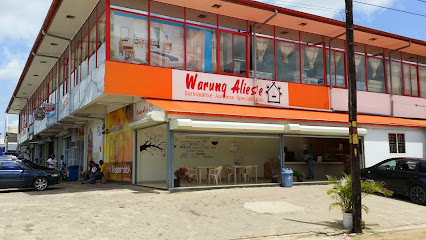
Naskip Lelydorp
Discover the ultimate chicken wing experience at Naskip Lelydorp in Suriname – where flavor meets fun in every bite!
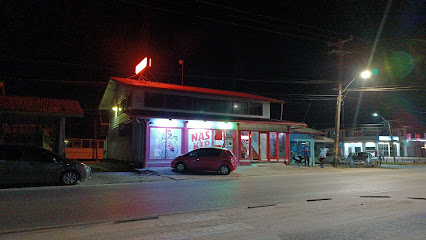
Makan Venue
Experience the rich flavors of Surinamese cuisine at Makan Venue, where every dish tells a story and hospitality meets culinary excellence.
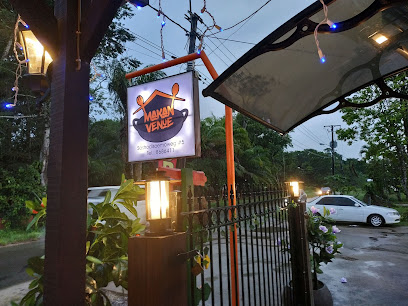
Restaurant L'Hermitage Suriname
Experience the exquisite tastes of Suriname at Restaurant L'Hermitage - where culinary traditions meet modern flair.
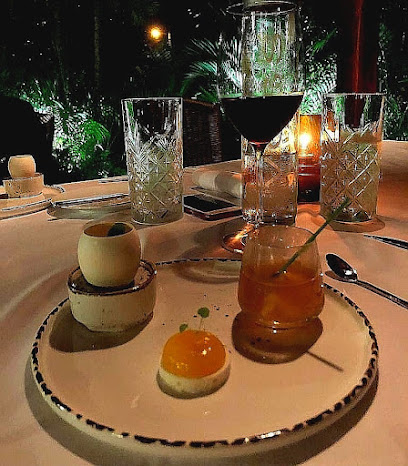
WARUNG~keten Lelydorp
Experience authentic Indonesian flavors at Warung~keten Lelydorp - where every meal is a journey through Indonesia's rich culinary heritage.
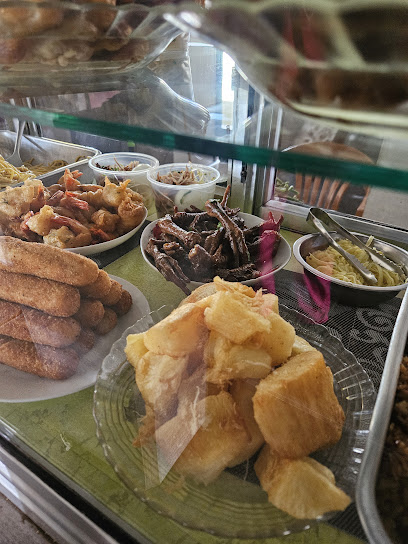
Soenita's Snacks
Discover the authentic taste of India at Soenita's Snacks, where every dish is a celebration of flavors and tradition.
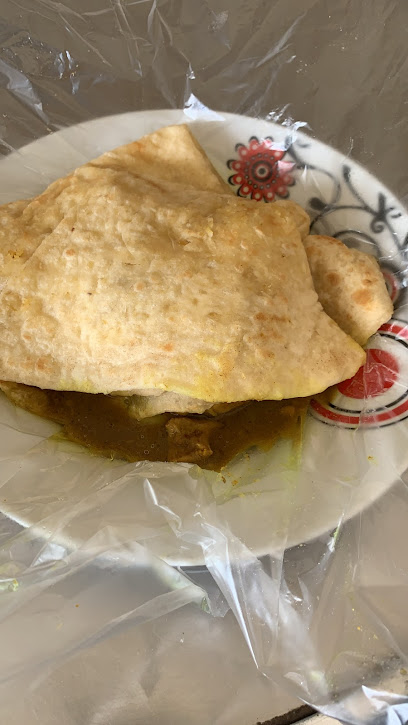
Warung La Denn Lelydorp
Experience authentic Indonesian cuisine at Warung La Denn Lelydorp - where vibrant flavors meet warm hospitality.
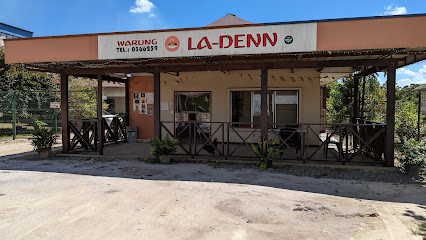
Markets, malls and hidden boutiques
Hermitage Mall
Discover the vibrant shopping experience at Hermitage Mall in Paramaribo, Suriname, where local charm meets international brands.
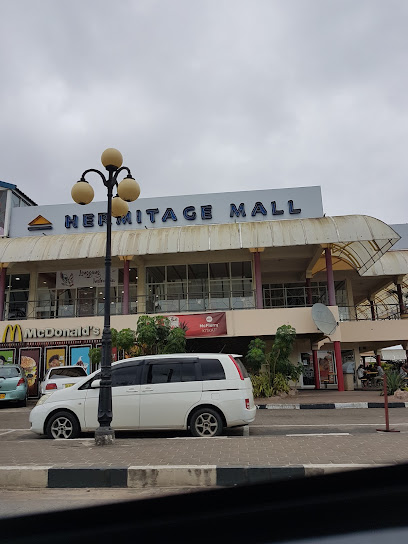
Lucky Store
Discover unique home goods and local treasures at Lucky Store in Paramaribo, Suriname – a shopping destination for the whole family.
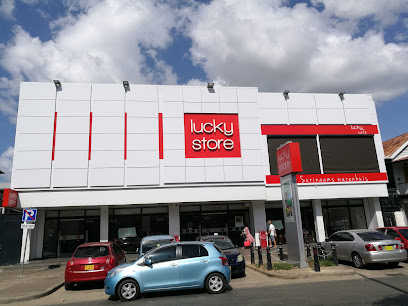
Choi's Lelydorp
Discover the vibrant flavors of Suriname at Choi's Lelydorp Supermarket, where local delicacies and fresh produce await your exploration.
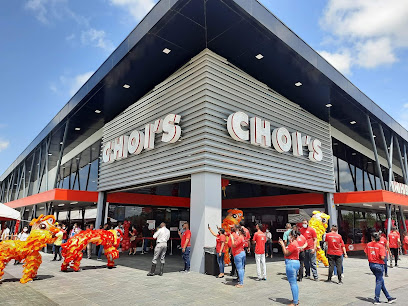
Hong Fu Warenhuis
Explore the diverse offerings at Hong Fu Warenhuis, the ultimate shopping destination in Lelydorp, Suriname.
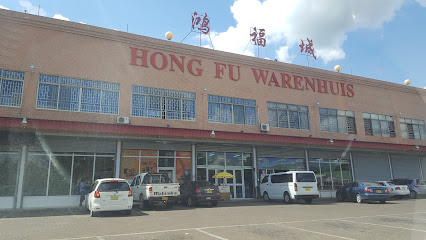
HSDS Lifestyle
Experience the heart of Suriname at HSDS Lifestyle, Lelydorp’s bustling shopping mall filled with local culture, unique shops, and delicious dining options.
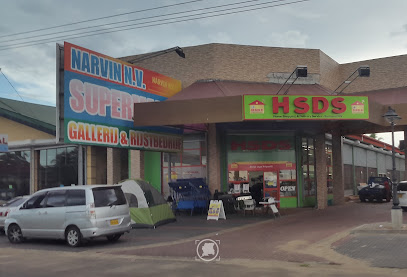
Weng Hu
Discover the vibrant Weng Hu Department Store in Lelydorp, Suriname, offering a diverse range of products in a lively shopping environment.
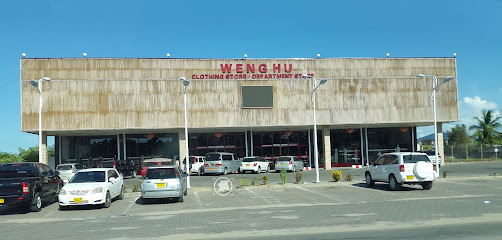
Tomahawk Lelydorp
Explore the best hunting and fishing gear at Tomahawk Lelydorp, your ultimate destination for outdoor adventures in Suriname.
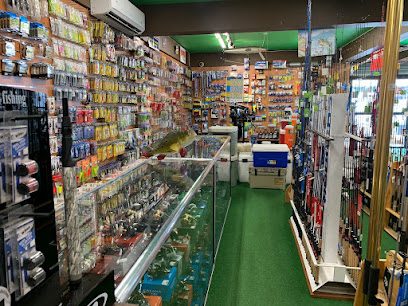
Dja Foe Lee
Discover the best of local and international products at Dja Foe Lee, Lelydorp's premier supermarket for tourists and locals alike.
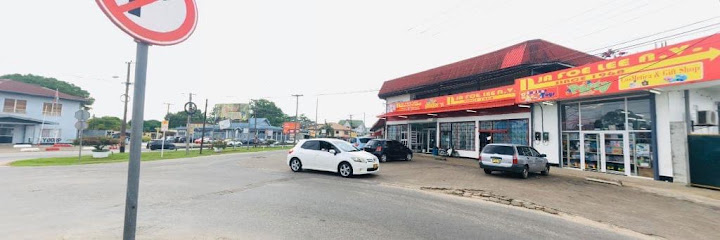
SLM Pastry & Snack Shop
Experience the taste of Suriname at SLM Pastry & Snack Shop, where every pastry tells a story of local tradition and flavor.
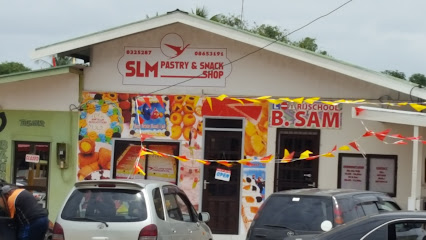
Zheng warenhuis
Explore the vibrant Zheng Warenhuis in Lelydorp, a supermarket offering a delightful mix of local and international products for every traveler.

MN International
Explore MN International in Lelydorp, Suriname, for all your mobile home supply needs and enhance your travel experience with quality products.
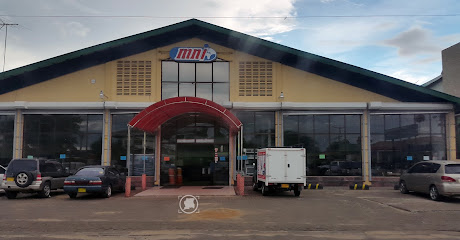
Digicel Lelydorp
Stay connected in Suriname with Digicel Lelydorp, your trusted cell phone store for all mobile needs.

NB Shopping
Experience the vibrant retail scene at NB Shopping Mall in Paramaribo, where local culture meets diverse shopping and dining options.
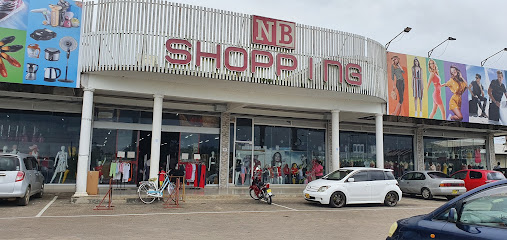
Da Lelydorp
Discover convenience at Da Lelydorp, Suriname's essential drugstore for health, beauty, and local remedies.
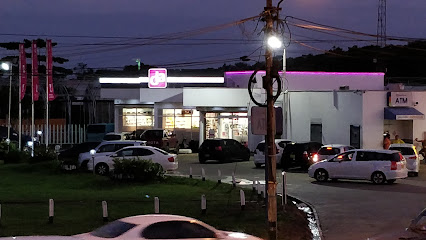
Trend Direct
Explore Trend Direct in Lelydorp for the latest in technology, cosmetics, and vaporizers, blending innovation with beauty in one vibrant store.
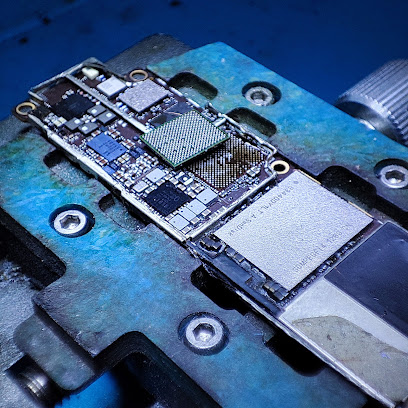
Essential bars & hidden hideouts
Bar Zuid
Discover the vibrant atmosphere of Bar Zuid in Paramaribo, the perfect spot for drinks, relaxation, and mingling with fellow travelers.
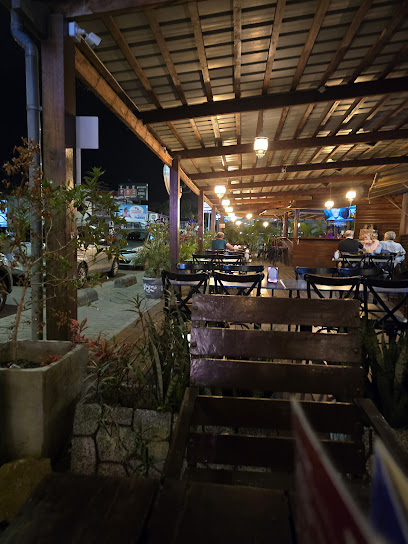
Riverside
Discover the flavors of Suriname at Riverside, a charming grill restaurant offering a picturesque dining experience by the water in Paramaribo.
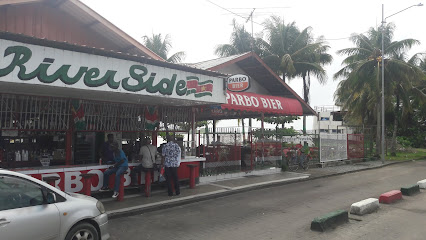
Mingle Paramaribo
Discover Mingle Paramaribo, a lively lounge in Suriname offering diverse cuisine and drinks in a cozy atmosphere perfect for nightlife enthusiasts.
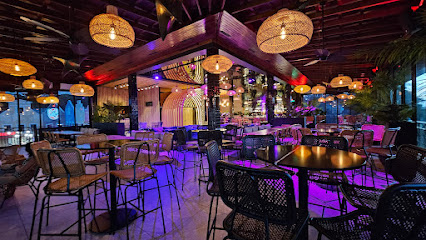
D'Bar
Experience the vibrant nightlife of Paramaribo at D'Bar, where refreshing drinks and lively ambiance create unforgettable memories.
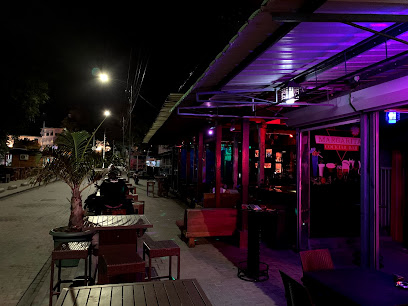
KFC Lelydorp
Discover the delicious taste of KFC in Lelydorp, where crispy chicken and friendly service await every visitor.
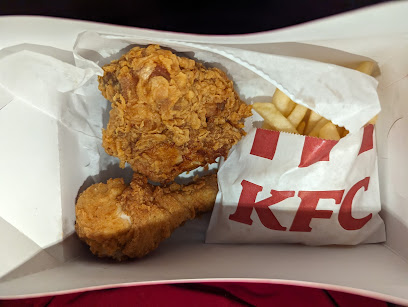
Lucky Garden
Experience the vibrant flavors of Suriname at Lucky Garden, a charming restaurant in Lelydorp, perfect for tourists seeking authentic local cuisine.
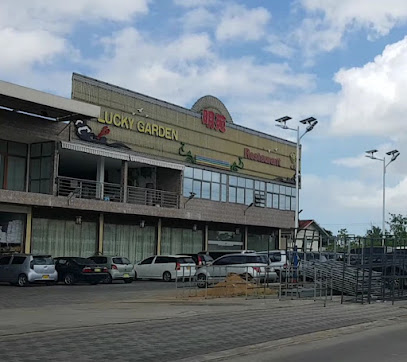
Naskip Lelydorp
Discover Naskip Lelydorp, a vibrant chicken wing restaurant offering a mouthwatering variety of flavors in Lelydorp, Suriname.
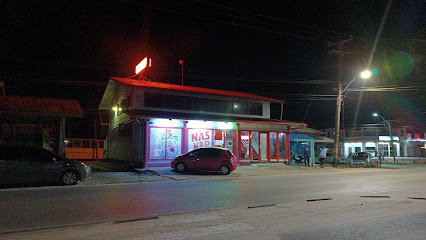
Bar Excellente Suriname
Experience the vibrant nightlife of Paramaribo at Bar Excellente, where local culture meets modern hospitality in a lively atmosphere.
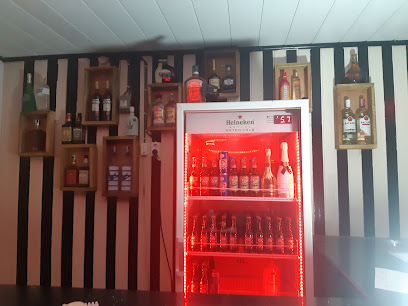
JACK's Restaurant ~ Chinese Food
Savor the rich flavors of authentic Chinese cuisine at JACK's Restaurant in Lelydorp, Suriname, where every dish tells a story.
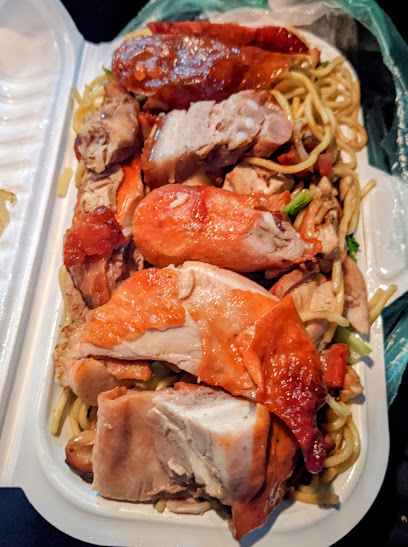
Sip Tea Lelydorp
Experience a delightful fusion of flavors at Sip Tea Lelydorp, your go-to bubble tea destination in Suriname!
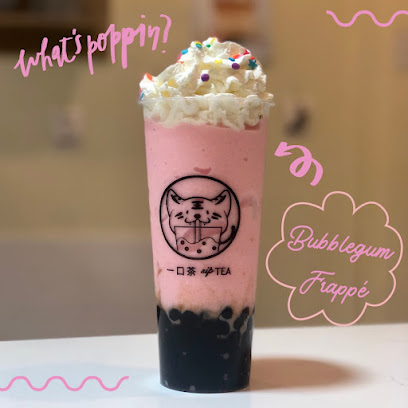
Lely's Roti Shop
Discover the flavors of Suriname at Lely's Roti Shop, a must-visit restaurant offering authentic roti and local dishes in a cozy setting.
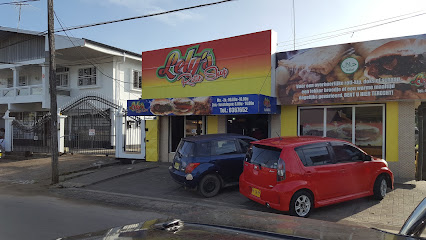
Tropix bar & lounge
Experience the lively spirit of Paramaribo at Tropix Bar & Lounge, where cocktails meet culture in a vibrant tropical setting.
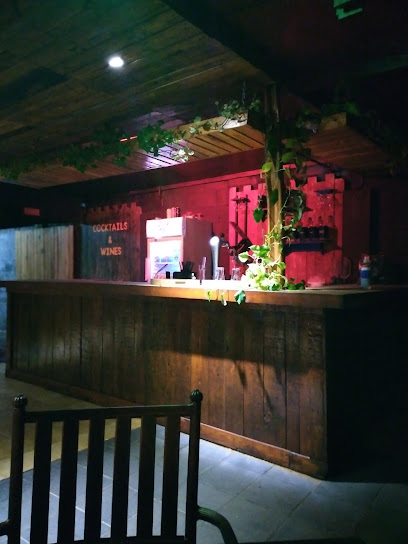
The Curry Boss
Experience authentic Surinamese curry cuisine at The Curry Boss in Lelydorp, a culinary delight for food lovers and tourists.
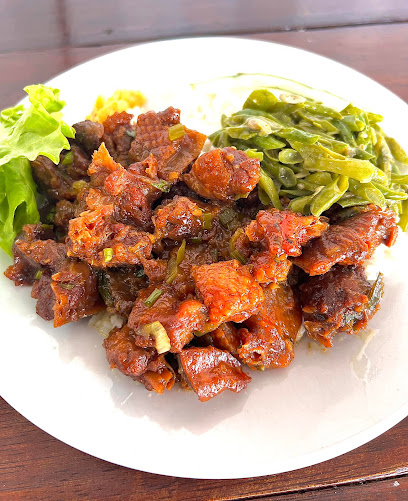
Dinesh Bar
Discover Dinesh Bar in Lelydorp, Suriname – a vibrant nightlife spot perfect for unwinding with drinks and meeting locals in a lively atmosphere.

Local Phrases
-
- HelloAlo
[ah-loh] - GoodbyeAdei
[ah-dei] - YesJa
[yah] - NoNeen
[neen] - Please/You're welcomeMi lobie
[mee loh-bee] - Thank youMeki
[meh-kee] - Excuse me/SorrySori
[soh-ree] - How are you?Fa waka?
[fah wah-kah] - Fine. And you?No span
[noh span] - Do you speak English?Yu e taki Inglish?
[yoo eh tah-kee Ing-gleesh] - I don't understandMi no sabi
[mee noh sah-bee]
- HelloAlo
-
- I'd like to see the menu, pleaseMi e wani si a menu, mi begi
[mee eh wah-nee see ah menu, mee beh-ghee] - I don't eat meatMi no e mankeri
[mee noh eh mahn-keh-ree] - Cheers!Boto!
[boh-toh] - I would like to pay, pleaseMi e wani pai, mi begi
[mee eh wah-nee pah-ee, mee beh-ghee]
- I'd like to see the menu, pleaseMi e wani si a menu, mi begi
-
- Help!Boyi!
[boy-ee] - Go away!Go na wegi!
[goh nah weh-gee] - Call the Police!Bel polisi!
[bell poh-lee-see] - Call a doctor!Bel yu dokter!
[bell yoo dohk-tehr] - I'm lostMi e feni mi sef kwit
[mee eh feh-nee mee sehf kwit] - I'm illMi e siik
[mee eh seek]
- Help!Boyi!
-
- I'd like to buy...Mi e wani bai...
[mee eh wah-nee bah-ee...] - I'm just lookingMi e saka saka
[mee eh sah-kah sah-kah] - How much is it?Fa a kosi?
[fah ah koh-see] - That's too expensiveDat e te duur
[daht eh teh duur] - Can you lower the price?Yu man du prijs ondro?
[yoo mahn doo price ohn-droh]
- I'd like to buy...Mi e wani bai...
-
- What time is it?Fa a ten?
[fah ah tehn] - It's one o'clockNa wan ten
[nah wahn tehn] - Half past (10)Half ten
[hahlf tehn] - MorningMowning
[moh-ning] - AfternoonMiddag
[mee-dahg] - EveningAfo
[ah-foh] - YesterdayGisteri
[gis-teh-ree] - TodayDey
[dei] - TomorrowMara
[mah-rah] - 1Wan
[wahn] - 2Tu
[too] - 3Dri
[dree] - 4Fo
[foh] - 5Fif
[fif] - 6Siksi
[seek-see] - 7Sebi
[seh-bee] - 8Eiti
[ay-tee] - 9Nain
[nayn] - 10Ten
[tehn]
- What time is it?Fa a ten?
-
- Where's a/the...?Fa a...
[fah ah...] - What's the address?Fa a adres?
[fah ah ah-drehs] - Can you show me (on the map)?Yu man sori mi (opu a kap)
[yoo mahn soh-ree mee (oh-poo ah kahp)] - When's the next (bus)?Fa a sonde...
[fah ah sohn-deh...] - A ticket (to ....)Wan teket (go...)
[wahn teh-keht (goh...)]
- Where's a/the...?Fa a...
History of Lelydorp
-
Lelydorp, originally known as Kofi Djompo, was established in the late 19th century. The name Kofi Djompo is believed to be derived from a runaway slave named Kofi who crossed a nearby creek by jumping over it. This period marked the beginning of the area's transformation from a rural settlement to a more structured community.
-
In 1905, Kofi Djompo was renamed Lelydorp in honor of Cornelis Lely, a Dutch engineer and statesman who played a significant role in the development of Suriname’s infrastructure. Lely is best known for his work in the Netherlands, including the Zuiderzee Works, but his contributions to Suriname's irrigation and drainage systems were also noteworthy. The renaming symbolized a new era of progress and modernization for the town.
-
Lelydorp's fertile soil and favorable climate made it an ideal location for agriculture. In the early 20th century, the area saw significant agricultural development, with the establishment of plantations growing crops such as bananas, citrus fruits, and vegetables. These plantations attracted laborers from various ethnic backgrounds, contributing to the town’s diverse cultural fabric.
-
The introduction of the Lawa Railway in the early 20th century was a pivotal moment for Lelydorp. The railway connected Paramaribo, the capital of Suriname, to the gold mines in the interior, passing through Lelydorp. This connection boosted the local economy by facilitating the transport of goods and people, further integrating Lelydorp into the national economic framework.
-
Lelydorp is a melting pot of cultures, with significant populations of Afro-Surinamese, East Indian, Javanese, and Chinese descent. This diversity is reflected in the town's vibrant community life, with various cultural festivals, religious celebrations, and culinary traditions. The annual Hindu festival of Phagwa, the Javanese Lebaran, and the Afro-Surinamese Keti Koti are just a few examples of the rich cultural tapestry that characterizes Lelydorp.
-
In recent decades, Lelydorp has seen substantial urban development. Modern infrastructure, including schools, healthcare facilities, and commercial centers, has been established, transforming the town into a suburban hub. Despite these developments, Lelydorp has managed to retain its unique cultural identity and historical charm.
Lelydorp Essentials
-
Lelydorp is located approximately 20 kilometers south of Paramaribo, the capital city of Suriname. The nearest international airport is Johan Adolf Pengel International Airport, which is about 15 kilometers from Lelydorp. From the airport, you can take a taxi or arrange for a hotel shuttle service. Alternatively, you can rent a car at the airport for more flexibility during your stay.
-
Within Lelydorp, transportation options include taxis, minibuses, and car rentals. Taxis are widely available and can be hailed on the street or booked through apps. Minibuses, known locally as 'buses,' are a common and affordable mode of public transport, connecting Lelydorp to Paramaribo and other nearby towns. Car rentals are also available for those who prefer to explore at their own pace.
-
The official currency in Suriname is the Surinamese Dollar (SRD). While credit cards are accepted in some hotels, restaurants, and larger shops, it is advisable to carry cash, especially for smaller establishments and local markets. ATMs are available in Lelydorp, but it is wise to withdraw sufficient cash in Paramaribo before traveling.
-
Lelydorp is generally a safe destination for tourists, but it is always wise to take standard precautions. Avoid walking alone at night in unfamiliar areas and keep an eye on your belongings in crowded places. Be cautious in areas with high crime rates, such as some parts of Paramaribo. It is best to stay vigilant and aware of your surroundings.
-
In case of emergency, dial 115 for immediate assistance. Lelydorp has local police and medical facilities available. It is recommended to have travel insurance that covers medical emergencies. For minor health issues, there are pharmacies where you can purchase over-the-counter medications.
-
Fashion: Do dress modestly, especially when visiting religious or cultural sites. Avoid wearing overly revealing clothing. Religion: Do respect local customs and traditions. Remove your shoes when entering homes or religious buildings. Public Transport: Do be respectful to fellow passengers. Don't eat or drink on public transport. Greetings: Do greet people with a handshake or a friendly nod. Surinamese people are generally warm and welcoming. Eating & Drinking: Do try local dishes and accept food offerings graciously. Don't refuse hospitality, as it may be considered impolite.
-
To experience Lelydorp like a local, visit the local markets where you can buy fresh produce and traditional Surinamese goods. Engage with locals, as they are often friendly and willing to share stories about the town's history and culture. Don't miss the opportunity to try local dishes such as roti, pom, and various seafood options. For a unique experience, take a day trip to the nearby nature reserves and botanical gardens.
Trending Landmark in Lelydorp
Nearby Cities to Lelydorp
-
Things To Do in Paramaribo
-
Things To Do in Mariënburg
-
Things To Do in Brokopondo
-
Things To Do in Moengo
-
Things To Do in Albina
-
Things To Do in Skeldon
-
Things To Do in New Amsterdam
-
Things To Do in Kwakwani
-
Things To Do in Ituni
-
Things To Do in Linden
-
Things To Do in Bartica
-
Things To Do in Anna Regina
-
Things To Do in Lethem
-
Things To Do in Kamarang
-
Things To Do in Princes Town





